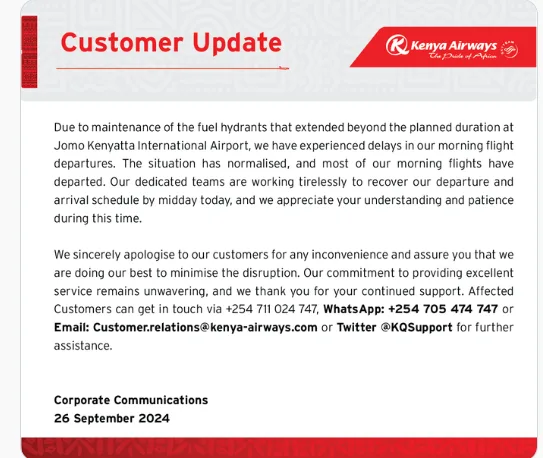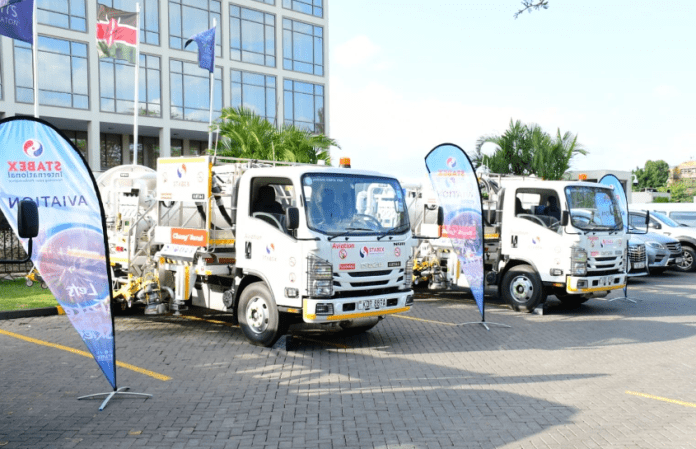Stabex Introduces Airplane Fueling Trucks After Fuel System Problem at JKIA
-
- Stabex International is a fast-growing Petroleum company operating in Kenya and Uganda.
- The company recently expanded its operations from vehicle fueling stations to airplane refueling.
- Stabex International rolled out a fleet of new airplane fueling trucks in a ceremony attended by Energy Cabinet Secretary Opiyo Wandayi.
- Kenya Airports Authority Chairman Caleb Kositany announced the launch, sparking a wave of controversy on social media.
Also read: Kenyans Express Safety Concerns Amid World War 3 Fears, Following Iran’s Missile Attack on Israel
Kenya Airways reports fuel system glitches at JKIA
Following news of the imminent takeover of the country’s airports by India’s Adani Group, public attention has been fixated on the country’s aviation sector.
Operations at the Jomo Kenyatta International Airport (JKIA) have been under intense scrutiny as Kenyans scramble to fight off Adani’s hold of the airport.
Recent reports of fuel system disruptions at East Africa’s busiest airport have raised concerns among travelers and the general public.
“Due to maintenance of the fuel hydrants that extended beyond the planned duration at JKIA, we have experienced delays in our morning flight departures. The situation has been normalized, and most of our morning flights have departed,” said Kenya Airways in a statement dated September 26th.
Although the situation was resolved quickly, some believe it was an act of sabotage intended to benefit Adani Group’s takeover.

Stabex International ownership raises eyebrows
Following JKIA’s fuelling challenge, Stabex International has ventured into the aviation industry targeting airplane refueling.
The petroleum firm launched a fleet of trucks to pursue this new business venture.
While details about the intended operational areas for the new trucks are limited, many Kenyans find the launch’s timing suspicious.
As news of the launch spread, some curious netizens began investigating the ownership and leadership of the seemingly new petroleum brand in Kenya.
A review of Kenya’s company registry reveals that three Kenyans are the shareholders of the company, with the following distribution of shares:
-
- Jackson Kiplimo Chebet – 925,000 ordinary shares
- Abraham Kipkoech Korir – 50,000 ordinary shares
- Daniel Kiprop Cherutich – 25,000 ordinary shares

Also read: Kenyans Back on the Streets Following Activist Morara Kebaso’s Arrest
Starbex is a fast-growing petroleum and gas company with Uganda as its main operational base.
The company is steadily venturing into the Kenyan market with its new aviation refueling initiative.
Stabex has set up over 70 fuelling stations and 8 depots across the two East African countries.
Kenyans have expressed skepticism about the company as it aims to make a significant impact on the country’s economy, especially since it is led by members of the president’s ethnic community.
The presence of the Energy Cabinet Secretary and other senior government officials during the launch did little to relieve the concerns.

























